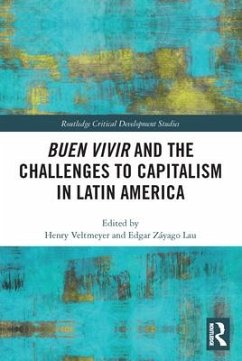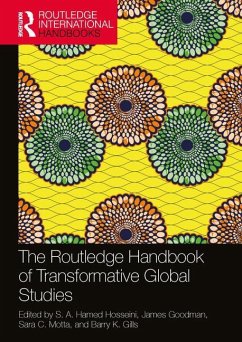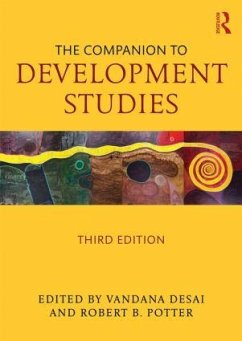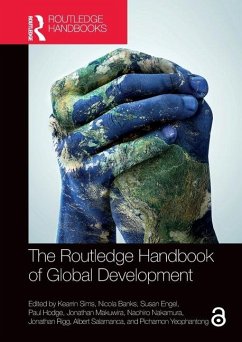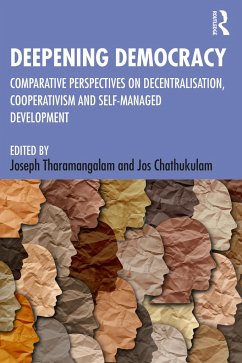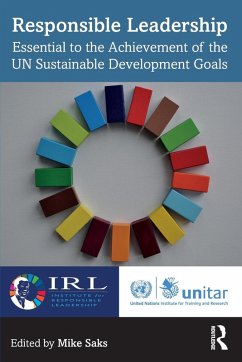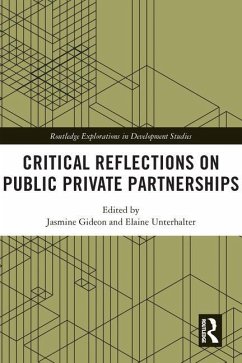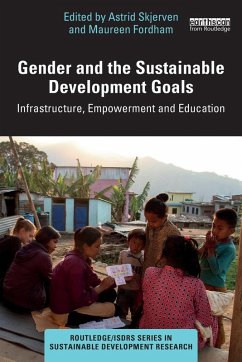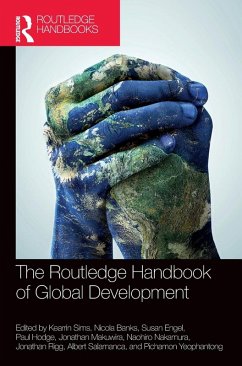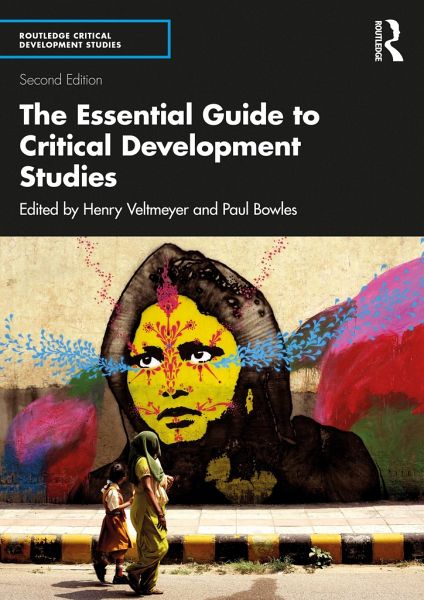
The Essential Guide to Critical Development Studies

PAYBACK Punkte
23 °P sammeln!
The Essential Guide to Critical Development Studies provides an up-to-date and authoritative introduction to the field, challenging mainstream development discourse and the assumptions that underlie it.Critical development studies lays bare the economic, political, social, and environmental crises that characterise the current global capitalist system, proposing instead systemic change and different pathways for moving beyond capitalism into a new world of genuine progress where economic and social justice and ecological integrity prevail. In this book, the authors challenge market-driven, neo...
The Essential Guide to Critical Development Studies provides an up-to-date and authoritative introduction to the field, challenging mainstream development discourse and the assumptions that underlie it.
Critical development studies lays bare the economic, political, social, and environmental crises that characterise the current global capitalist system, proposing instead systemic change and different pathways for moving beyond capitalism into a new world of genuine progress where economic and social justice and ecological integrity prevail. In this book, the authors challenge market-driven, neoliberal development agendas, incorporating analyses of class, gender, race, and the dynamics of uneven capitalist development. This thoroughly revised and expanded second edition includes:
18 new chapters, including on topics such as philanthrocapitalism, race, the energy transition, Indigenous resistance and resilience, and global healthExpanded global coverage, including newchapters on South Africa, North Africa, and the Gulf Arab statesA new section on resistance and alternativesAdditional pedagogical features, including a glossary of key terms, discussion questions, and expanded guides for further reading
This textbook will be essential reading for students of global development, political science, sociology, economics, gender studies, geography, history, anthropology, agrarian studies, international political economy, and area studies. It will also be an important resource for development researchers, practitioners and policymakers.
Critical development studies lays bare the economic, political, social, and environmental crises that characterise the current global capitalist system, proposing instead systemic change and different pathways for moving beyond capitalism into a new world of genuine progress where economic and social justice and ecological integrity prevail. In this book, the authors challenge market-driven, neoliberal development agendas, incorporating analyses of class, gender, race, and the dynamics of uneven capitalist development. This thoroughly revised and expanded second edition includes:
18 new chapters, including on topics such as philanthrocapitalism, race, the energy transition, Indigenous resistance and resilience, and global healthExpanded global coverage, including newchapters on South Africa, North Africa, and the Gulf Arab statesA new section on resistance and alternativesAdditional pedagogical features, including a glossary of key terms, discussion questions, and expanded guides for further reading
This textbook will be essential reading for students of global development, political science, sociology, economics, gender studies, geography, history, anthropology, agrarian studies, international political economy, and area studies. It will also be an important resource for development researchers, practitioners and policymakers.





